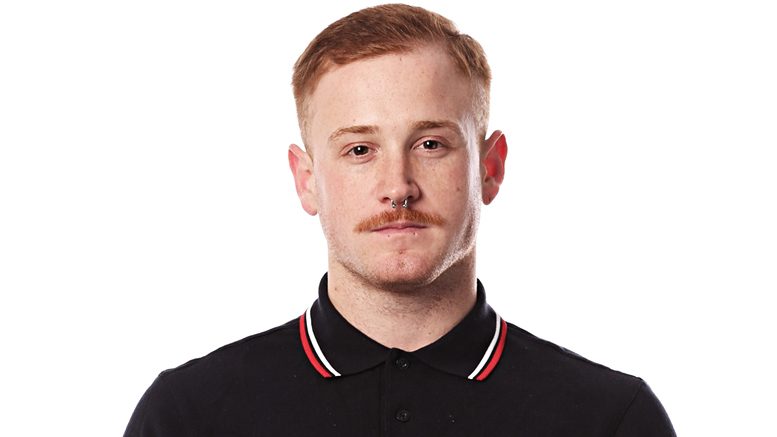By: Keegan O’Brien*—
While millions celebrated the Supreme Court’s historic ruling on June 26 making gay marriage the law of the land in all fifty states, it wasn’t just right-wingers who were raining on the big rainbow parade. A number of activists on the queer left, plenty of whom I respect and agree with on other issues, were less than enthusiastic.
Prominent South Asian trans spoken word duo Darkmatter, who recently did a tour called “Gay Rights Are Wrong,” and the collective Against Equality were among those making the case that the Court’s ruling was at best insignificant, and at worst a step backwards. Darkmatter’s posts in particular struck a cord, generating several thousand likes and shares on Facebook.
Here’s why they’re wrong.
For starters, critics argue that marriage equality only affects rich, white, cisgender gays and lesbians. But this is simply not true. Marriage equality is a class issue that provides real, material benefits to working-class same-sex couples — cisgender and trans, and black, white, and brown.
One would have to be out of touch with the day-to-day reality of working-class people’s lives to argue it’s insignificant that same-sex couples can now visit one another in the hospital, secure access to crucial tax benefits, share custody over their children, and gain citizenship for their partner. What’s more, trans people who didn’t have the means to legally or medically transition can now be covered under their partner’s health insurance.
But marriage equality is about more than just material benefits — it’s about dignity. In a society that has told LGBTQ people they are less than equal for decades, it matters that queer people will be able to hold their head up a little higher, that coming out and living openly will be somewhat easier, and that future generations will have access to rights and social freedoms that would have been unimaginable to queers just a couple decades ago.
And given the scarcity of left victories over the last few decades, winning gay marriage is substantial. Aside from small wins here and there, until last month there was nothing this generation could point to in our lifetime as a major victory, as a confirmation that when ordinary people organize and fight back they can force the people in power to cave. For those of us whose political horizons extend well beyond marriage, this is good news.
Ironically, leftist arguments against marriage equality have something in common with Gay Inc. — they both attribute this victory to politicians. However, far from being a gift delivered from on high, gay marriage was opposed by almost the entire Democratic Party establishment until just a few years ago. It is pressure from below that has decisively pushed this struggle forward.
The legalization of gay marriage also shows just how flexible and dynamic capitalism can be. As long as profitability isn’t threatened, the economic system will allow all sorts of adjustments, including to the gender make-up of the nuclear family.
But that doesn’t mean progress was automatic. Every gain has required relentless struggle from below. This win doesn’t belong to gay-friendly corporate America, the Democratic Party, or the Supreme Court — it belongs to the thousands who protested, sat in, spoke out, and organized even when they were told their demands were unrealistic. It belongs to us.
In 2008 California passed Proposition 8, which banned gay marriage and stripped same-sex couples of their civil rights. Prop 8’s passage sparked an eruption of protests organized largely over social media by young activists independent of established LGBTQ organizations and led to the formation of new grassroots activist groups such as Join the Impact, One Struggle, One Fight, and Queer Rising. A year later, this momentum culminated in the National Equality March in Washington, DC.
The march was organized by a ragtag, multiracial band of working-class LGBTQ activists from all across the country and had one simple demand: full LGBTQ equality now. March organizers included veteran fighters like AIDS activist and union militant Cleve Jones and socialist activist and writer Sherry Wolf; well-known artists like spoken word poet Stayceann Chin; and new activists, young and old, like high school organizer Jose Richard Alvis and union militant and trans activist Tara Le. Broadway performers organized dozens of buses from New York City alone.
Despite opposition until very late in the organizing process by the Human Rights Campaign and other established LGBTQ organizations, the march drew over 250,000 people, wildly exceeding organizers expectations of 5,000 to 10,000, and making it the first and largest demonstration for LGBTQ rights since 1993.
The explosion of protests nationwide after Prop 8 and the National Equality March marked a turning point in the fight for marriage equality. The demonstrations took the gay marriage debate national, helped push public support into the majority, and invigorated local activism, paving the way for future successful campaigns.
A common argument made by critics is that fighting for issues such as marriage equality or ending discrimination in the military assimilates LGBTQ people into oppressive systems that radicals should have no business in. Instead, they insist, the focus should be on struggling for liberation. This strategy leaves activists with radical slogans and little else.
Small adjustments to such a fundamentally rotten system are of course insufficient. We need a revolution, a world where working class and oppressed people run society collectively and democratically, and harness the immense wealth they’ve created to build a system based on human need and solidarity, not war, poverty, and oppression. But I also know that revolution won’t happen in one spontaneous swoop, and rarely do radicals — especially at a time when the Left is weak — get to determine when and where mass movements break out.
Marriage equality is of course a partial victory that provides limited improvements to people’s lives while still leaving the system intact. But socialists support raising the minimum wage to $15 and the right of workers to unionize, even though it doesn’t change the fundamental relationship of exploitation between labor and capital. We fight to abolish the death penalty, even though the system of mass incarceration persists. We struggle for a more democratic political system, even if capitalism constantly threatens political equality.
We do so not only because these advances improve the lives and conditions of the people they affect, but because history proves time and time again that reform movements, rather than being a barrier to future struggles, have the potential to build a higher level of confidence, organization, and consciousness that sets the stage for future victories.
Whether reforms have a radicalizing effect or are co-opted and defanged by those in power is significantly dependent on the size, rootedness, and influence of the organized left and its ability to contend politically against the influence of more conservative, status quo forces in the movement — such as the Human Rights Campaign.
That’s why the decision by many good radical activists to stand on the sidelines over the last decade as hundreds of thousands of people were drawn into struggles for marriage equality was wrongheaded. It weakened the left wing of the movement and made it easier for Gay Inc.’s conservative, myopic politics to dominate.
Another claim of skeptics is that winning gay marriage will put an end to the LGBTQ movement altogether. Some activists have cautioned that since rich gays and lesbians have gotten what they want, the funding for political organizations will suddenly dry up and the issues affecting the most vulnerable and marginalized LGBTQ people will go unaddressed.
But this argument only reflects how much political activism has become steeped in the nonprofit world, where a movement’s ability to win is determined by how big of a grant it can get from some foundation. While movements need to be independently funded and self-sustaining, it’s bottom-up pressure that drives social change — not cash.
Outside of maybe a few gay millionaires, no one’s proclaiming the struggle is over. Even the New York Times, hardly a mouthpiece for the radical left, ran a front-page article the day after the Supreme Court’s ruling titled “Next Fight for Gay Rights: Bias in Jobs and Housing.”
Far from cutting the movement short, the public opinion sea change over the past decade, the increasingly awful economic situation that huge numbers of people are experiencing, and the emergence of the Black Lives Matter movement have created fertile ground for activists to agitate around issues that Gay Inc. de-prioritized, including LGBTQ youth homelessness, violence against trans women (disproportionately trans women of color), and the racist, anti-queer criminal justice system.
Considering the Left’s string of losses over the past forty years, it’s not surprising that many good activists have lowered their expectations and embraced the idea that there’s a limit to what our movements can achieve — that we can only pick between winning gay marriage or combating anti-trans violence.
But this is a ruling-class zero-sum game that leaves our side picking for scraps, lowers our movement’s horizons, and narrows our conceptions of what’s possible. The job of the Left is to challenge the ruling class’s definition of what’s realistic and raise people’s expectations of what we can achieve.
Leftists such as Solidarity member Mehlab Jameel are right to criticize efforts by Gay Inc. and the Democratic Party to use LGBT rights to give a progressive veneer to settler colonialism and imperialism, but that doesn’t mean the fight for civil rights is hopeless. The ruling class has always appropriated progressives’ language for its own ends. George W. Bush used the mantle of feminism and women’s rights to carry out a “war on terror” that left thousands of Afghans and Iraqis dead. That didn’t prompt the Left to dismiss the struggle for women’s rights and reproductive justice as a project of imperialism.
Radicals can — and must — fight to advance civil rights for LGBT people while also organizing to challenge pinkwashing and oppose racism and empire.
Above all, these left criticisms are a manifestation of a tendency among radical activists to view movements and reform victories only in terms of what they haven’t accomplished. But while it’s good to resist being placated by small reforms, what this approach misses is that mass movements open up new possibilities for large numbers of people to become radicalized.
When calls for radical change take the place of figuring out how to dynamically relate to people other than committed leftists, activists have created an echo chamber that only inhibits movement building. Demands to abolish marriage or smash the state may generate support from other radicals, but they remain empty slogans without the popular forces required to bring about social transformation.
What is threatening to the system, however, is a radical politics that prizes figuring out how we can relate to the world as it actually exists today, meeting people where they are at, and trying to move things forward from there. Those of us who want to effect social change have an opportunity right now to insert ourselves into a process in which wider layers of people are getting a taste of their own power, increasing their confidence, and expanding their vision of what’s possible.
This requires being able to assess the dynamics of each moment and figure out what makes sense tactically; knowing when to advance, and when to retreat; and most importantly, being willing to patiently argue and debate with others as we continue to struggle alongside them.
Long-term, patient organizing may not be the revolution. But it’s the only way to get us there.
*Keegan O’Brien is a queer socialist activist and writer, and a graduate student at the University of Massachusetts Boston. O’Brien is an independent columnist whose work has appeared in The Nation, Electronic Intifada, and SocialistWorker.org. He was also an organizer for the first alternative parade in 2011. This story first appeared in the JacobIn Magazine online.








“The legalization of gay marriage also shows just how flexible and dynamic capitalism can be. As long as profitability isn’t threatened, the economic system will allow all sorts of adjustments, including to the gender make-up of the nuclear family.”
NEWSFLASH. THIS IS NOT THE LOGIC OF THE POLITICAL LEFT. You literally admit that gay marriage is in service of capitalism, as well as in service of conservative moral and societal structures–all of which, (duh), hurt poor people, people of color, women, trans* folk, etc.
What’s more, there seems to be this strange lack of concern about the completely ahistorical account of the gay marriage campaigns timeline, leaders, political stakes, etc. As if to say: ignore the $300 million tax exemption seeking right-winger behind the HRC step-and-repeat.
Meanwhile, who’s out of touch with real people’s problems? Very few people are going to get gay married, even among gay marriage supporters, relative to the LGBTQ population. And for those who do, almost all of marriage’s supposed benefits are conferred upon couples wherein at least one party already has “the goods” (money, job, health insurance, etc.). Meanwhile, in the wake of the campaign for gay marriage: funds for LGBTQ service orgs working around housing, shelters, needle exchange, hiv/aids, non-marriage related legal aid, mental health, etc. and their related advocacy orgs all but dried up. What’s worse, the campaign’s normative rhetoric only served to further marginalize the most at-risk among us.
But bottom line: I know you want to believe you are a leftist, or a progressive, or whatever. Guess what? You’re a flaming neoliberal. “Progress” without material analysis–try, a more pallatable repackaging of the reinforcement of conservative values, one that simultaneously obscures the structural political/ideological conditions upon which it’s built, all while neutralizing that “I want so badly to feel like I’m progressive” nagging ISO guilt.